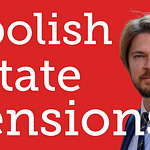In this Institute of Economic Affairs podcast, Head of Media and Communications Reem Ibrahim is joined by Executive Director Tom Clougherty and Editorial Director Kristian Niemietz to discuss the aftermath of the Labour Party conference. The conversation examines Rachel Reeves’s speech as Chancellor, analysing her dual messaging that attempts to position Labour both as a left-wing alternative to the Conservatives and as the pro-business, fiscally responsible party against Reform. They discuss the notable absence of tax policy details ahead of the autumn budget, the focus on initiatives like school breakfast clubs rather than substantive economic strategy, and concerns that the government prioritises state spending over genuine growth-promoting reforms.
The discussion turns to Labour’s approach to economic inactivity and youth unemployment, particularly Rachel Reeves’s job guarantee scheme. The panel critiques this workfare-style program as misdiagnosing the problem, noting that the real issue lies in the massive increase in disability and incapacity benefit claims rather than conventional unemployment. They examine how government policies like increased employer National Insurance contributions, higher minimum wages, and employment rights reforms are making it more expensive and riskier to hire young people, while the job guarantee scheme fails to address these fundamental barriers to employment.
The podcast concludes with analysis of recent climate and health policy announcements. Ed Miliband’s pledge to ban fracking is discussed as largely symbolic given existing regulatory barriers, while the panel examines how high energy costs resulting from climate policies are hampering UK economic competitiveness. They also critique the government’s implementation of restrictions on buy-one-get-one-free deals for foods high in fat, salt and sugar, arguing this “bogof ban” will add hundreds of pounds to family food bills during a cost of living crisis without meaningful evidence of reducing obesity. The conversation highlights how regulatory overreach across multiple policy areas reflects a broader pattern of state expansion that prioritises activist agendas over economic growth and consumer freedom.

















